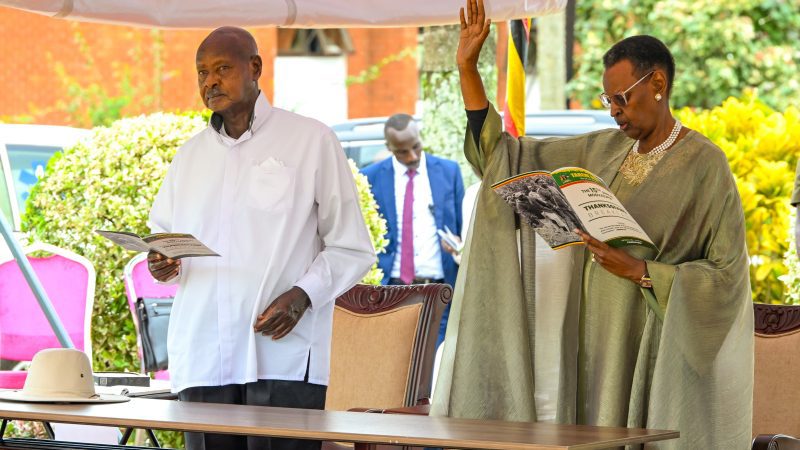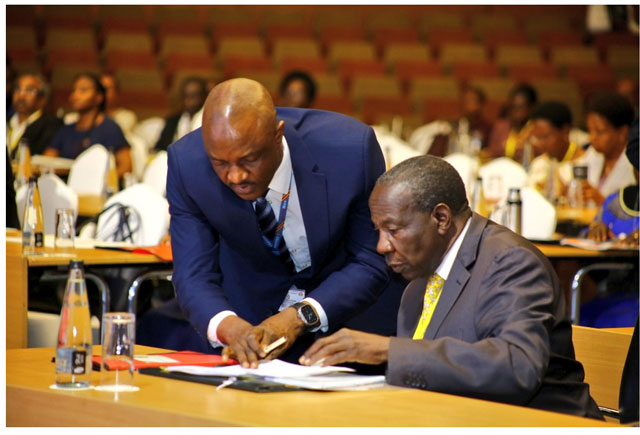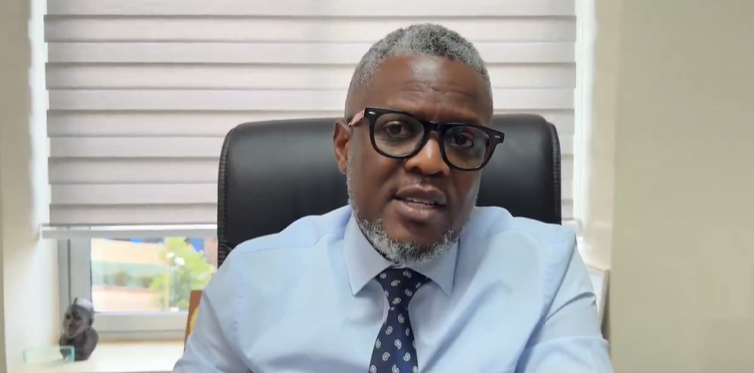The Ministry of Finance has revealed that the Government will spend up to UGX 24.9 trillion on servicing Uganda’s public debt.
This comes months after the Bank of Uganda reported that Uganda’s public debt as of August 2023 stood at UGX 88.807 trillion. The August debt figures do not include the UGX 7 trillion worth of loans Parliament approved in December.
While appearing before Parliament’s Finance Committee to present the 2024/25 National Budget Framework Paper, Stephen Ojiambo, Commissioner of Accounts in the Treasury Operations, said that in the coming financial year, the Ministry of Finance will focus on payment of each debt as when it falls due so as not to attract interest from the lenders.
According to the Ministry of Finance, the projection for expenditure on external amortisation has increased because of huge principal repayments of UGX 950 billion on the Karuma power dam project, UGX 190 billion on the Isimba dam, UGX 108 billion on Kabalega International Airport, UGX 218 billion on Afrexim Budget support, UGX 241 billion on Standard Bank and UGX 365 billion on TDB budget support.
The latest development comes at the time the Bank of Uganda, in its quarterly State of Economy report for December 2023, expressed concern over the increasing public debt, saying that this is exerting pressure on revenue collections with the report stating, “Interest payments and external debt principal repayments exert elevated pressure on tax revenues to the extent that for every UGX 100 collected in tax revenues, UGX 32 goes to debt service, diminishing resources available for service delivery.”
Support to private projects
The Ministry of Finance also revealed plans to inject UGX 197 billion into Roko Construction Company and Lubowa Specialised Hospital. Officials said this would be part of the Government’s obligation to purchase shares in Roko Construction Company and payment of four promissory notes for Lubowa Specialised Hospital. The obligations to the construction firm and Italian Enrica Penetti’s Lubowa Specialised Hospital are projected to mature during the 2024/25 financial year.
DR Congo debt
Next financial year, the Government has also budgeted for UX 274 billion as part payment of the reparations to the Democratic Republic of Congo for the resources that were plundered when the Ugandan troops operated in the neighbouring country in the late 1990s. A 2001 UN report found Uganda’s Army guilty of looting minerals, coffee, timber and livestock during an earlier deployment. In February 2022, the International Court of Justice (ICJ) ordered Uganda to pay DRC $325m (about UGX1.234 trillion).
However, Basil Bataringaya, MP for Kashari North, wondered why the Government is meeting debt obligations of international lenders and commercial banks but ignoring the domestic arrears, whose biggest victims are the local suppliers of goods and services to Ministries and agencies.
“I am aware that our current domestic arrears stand at about UGX 7.7 trillion, but when I was reading through the Budget Framework Paper, I saw a provision of UGX 200 billion. So the UGX 7.7 trillion, these are Ugandans who have lent money to the Government free with no interest rate, they have supplied, they have done business, but they aren’t yet paid,” said Bataringaya.
He warned that with the meagre money being put aside to clear domestic arrears, it would take the Government around four decades to clear the current domestic arrears.
“Now, UGX 7.7 trillion, if we take UGX 200 billion every year, we are going to take 39 years to pay this UGX 7.7 trillion. So, my question is, this person who supplied Uganda, what hope does he have? And remember, they used bank loans, some of them will commit suicide,” added Bataringaya.
Effects of anti-gay law
During the meeting, Henry Musasizi, Minister of State for Finance (General Duties), revealed that the enactment of the Anti-Homosexuality Act has created external financial risks and uncertainty for Uganda, thus prompting the government to intensify negotiations with the World Bank to lift the ban on lending to new projects in Uganda.
“The enactment of the anti-homosexuality Act has created external financing risks and uncertainty. We have continued with our engagements with the World Bank to ensure the lifting of the ban on the financing of the new projects,” said Musasizi.
He said that Uganda’s economic situation is further challenged by the lagged effects of COVID-19 on economic growth and, consequently, revenue mobilisation. The sharp increase in interest rates globally has increased the cost of external borrowing.
Bank of Uganda also, in its December 2023 State of Economy Performance Report, revealed that the pronouncement by the World Bank to halt funding projects in Uganda following the passing of the Anti-Homosexuality Act saw the Uganda Shilling depreciate in value against the dollar date.
According to the Central Bank, the shilling depreciated by 8 per cent to UGX 3,825.33 per US dollar in September 2022 from UGX 3,541.46 in April 2022. BOU had to increase the cash reserve requirement (CRR) by 2 percentage points to 10 per cent in June 2022 to drain excess liquidity and support the shilling. Inflation has since fallen sharply, and portfolio outflows reduced significantly.
“The exchange rate has been broadly stable, except in recent months, when it depreciated, driven by sentiments around the World Bank’s pronouncement on the suspension of new financing,” as noted in the Central Bank report.
Muwanga Kivumbi, MP for Butambala County, raised concern about the sharp increase in commitment fees that are set to rise from UGX 19.348 billion to UGX 70.616 billion. Commitment fees are charged on loan amounts not yet disbursed after project effectiveness by creditors such as the African Development Bank, French Development Agency, Exim Bank of China, and Exim Bank of Korea, among others.
The Ministry of Finance, in its September 2023 Debt Statistical Bulletin, indicated that Uganda’s undisbursed debt reduced from $3.13 billion (about UGX 11.850 trillion) as of June 2023 to $2.99 billion (about UGX11.321 trillion) by the end of September 2023 and all these idle loans are attracting commitment fees.









